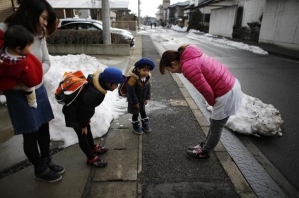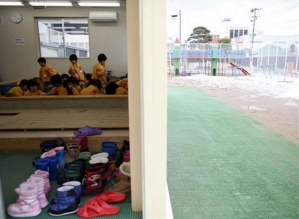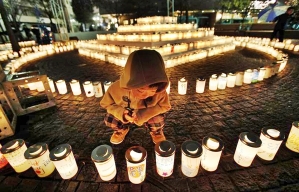
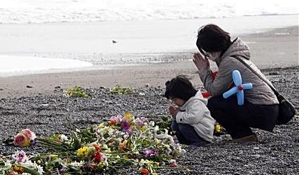
The earthquake on March 11, 2011 and subsequent tsunami which damaged the Fukushima Daiichi nuclear power plant in Japan is said to be the most devastating catastrophe in history. Tens of thousands of people lost their lives, and millions evacuated their homes because of nuclear radiation in the Fukushima region. While billions of dollars in aid has helped with disaster relief, numerous families are still displaced and in need of assistance.
Related: 'Severe' 6.3 Magnitude Earthquake Strikes Japan in Southern Inland Sea on March 13, 2014
The magnitude-9 earthquake in Japan which was followed by a tsunami that had waves over 100 feet high damaged the Fukushima Daiichi nuclear power plant, causing three nuclear reactors to go into meltdown. Environment News Service reports that the natural disasters killed more than 15,800 people, and that over 2,600 people have been reported missing. Tragically, there have also been about 1,600 deaths related to the evacuation of Fukushima, a city less than 300 miles north of Tokyo. The financial loss from the combined disasters was over $235 billion, making them the most expensive catastrophes in history.
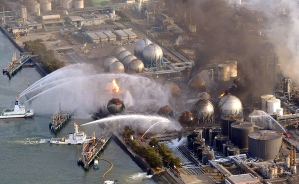
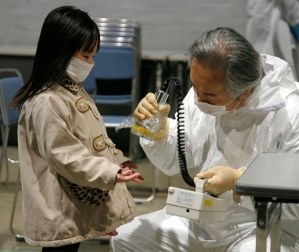
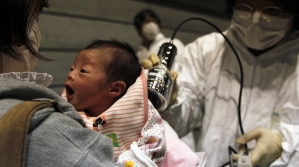
Prior to the earthquake, Japan had relied on nuclear power for about 30% of its country's energy. The country has now heightened safety regulations at their nuclear power plants and have kept all of their remaining reactors offline in the wake of the Fukushima disaster. Japan has also established the Nuclear Regulation Authority, a regulatory agency independent of what critics have called the "nuclear power village" in the country. Around 80% of people recently surveyed in the country are hoping that Japan will either reduce or eliminate its use of nuclear power altogether.
After the devastating incident in Japan, several countries have reevaluated their nuclear energy plans. Germany has decided to phase out all nuclear reactors by 2022, planning to focus instead on renewable energy in the future. Switzerland also plans to phase out their nuclear power plants by 2034.
The United States has continued to use nuclear power with no known plans to phase it out, though it has invested significantly in increased safety regulations at power plants in light of the Fukushima disaster. France, India, Russia, and Brazil are hoping to produce more nuclear power in the future. Because China's coal-produced electricity causes a significant amount of air pollution, the country also hopes to triple its nuclear reactors by 2020.
Christianity Today reports that more than one million people were forced to evacuate their homes in the nuclear plant region in 2011. Radiation cleanup continues in Fukushima, with many who lived in the area displaced from their homes. "Many people are still living under difficult conditions, whether they are in the afflicted regions or in the places where they evacuated to ... It pains me greatly to think that so many people do not yet know when they can go back to their own homes," Japan's Emperor Akihito said recently.
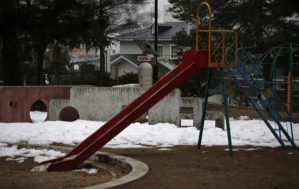
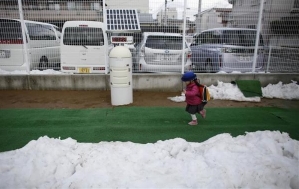
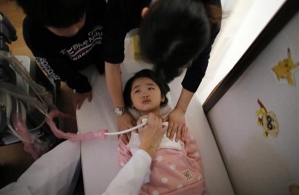
Relief groups from churches and agencies from over 80 countries sent thousands of volunteers to help with the disaster, and evangelist Will Graham has also visited the country to share the hope of Christ with those suffering. About 20 of Fukushima's 100 local Christian churches decided to stay in the area to serve their communities, and were reportedly able to respond to the needs around them much more quickly than the city authorities.
While billions of dollars of aid have poured into the region, the displaced families still have many physical, emotional, and spiritual needs. Some churches have taken a more ministry-oriented approach to serving the community around them, in light of the intangible needs that prevail. Rather than serve food as cheaply and as quickly possible to the masses, some churches have instead provided shelter to a smaller number of families who had lost their homes, hoping to build strong relationships with them and to help meet their spiritual and emotional needs as well. Some Christian organizations have offered foot-washings and massages for evacuees, in addition to grief counseling and helping to decontaminate farm land. They have also hosted sporting events and camps to help local children heal from the catastrophe.
Only about one percent of Japanese profess Christianity, and the country is said to be "hard soil" for many missionaries. Please pray for the Christian churches and organizations in the Fukushima area to help meet the needs of the people around them, and for many Japanese to receive the hope and healing that is found in knowing and loving Jesus Christ as Savior.
